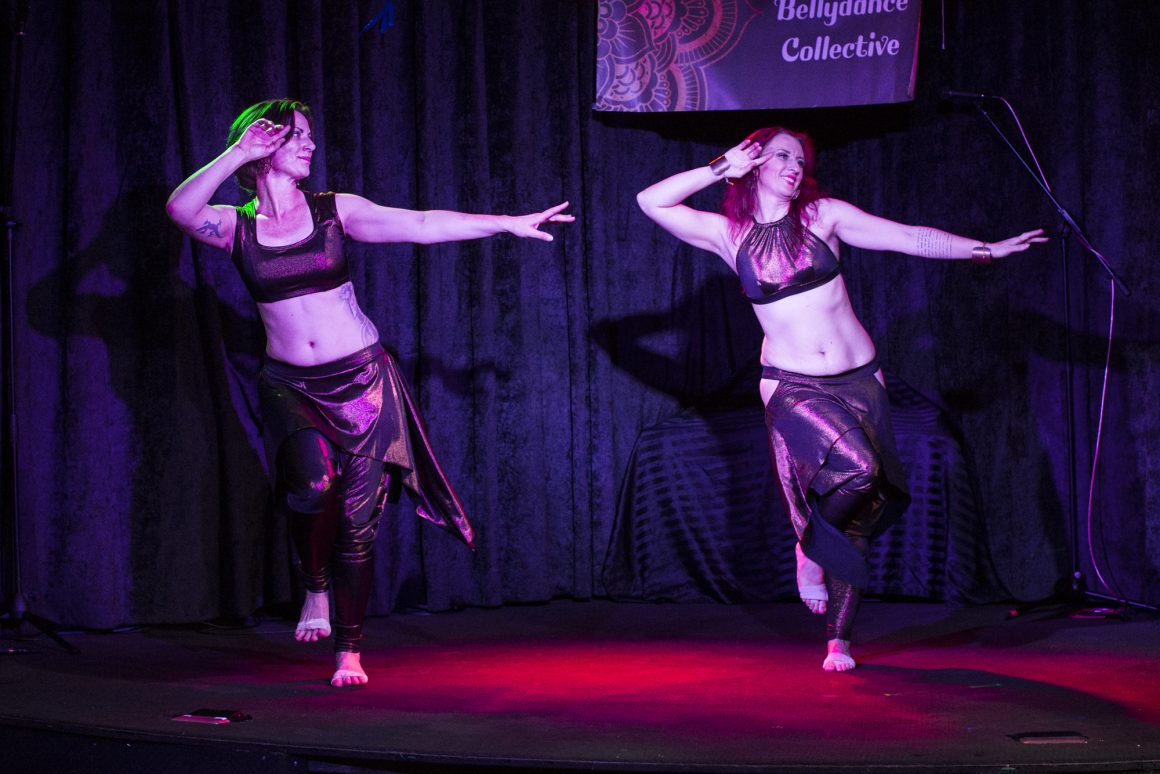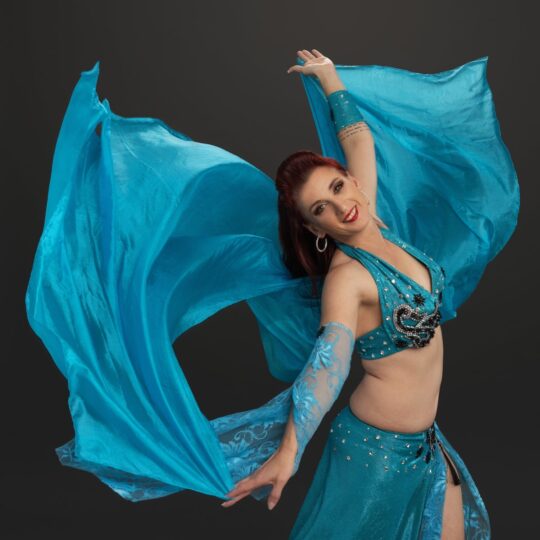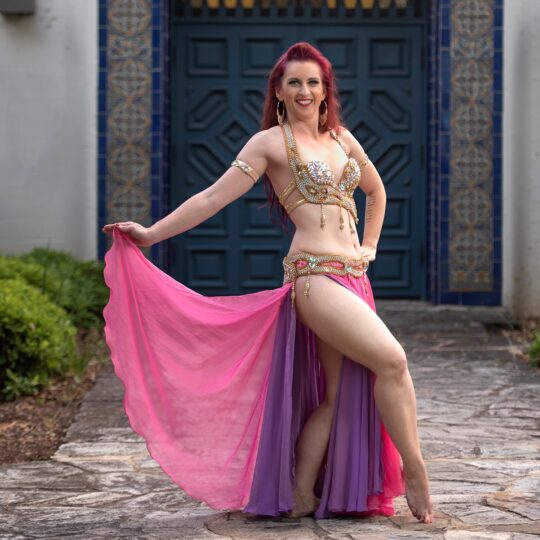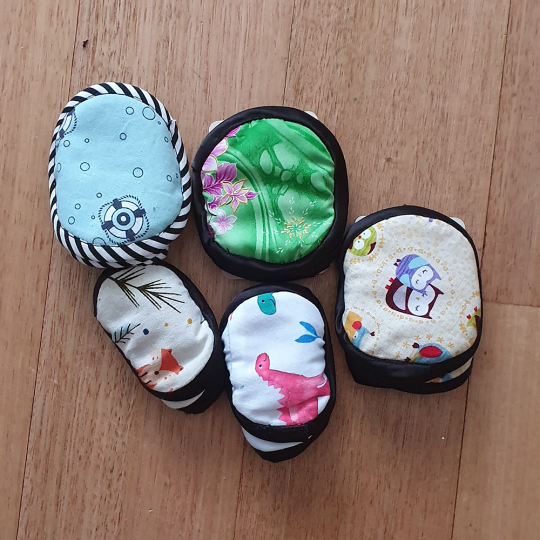There’s a particular excitement that happens when performing on a stage. From getting ready, all the rehearsals and planning and selecting your costume, getting nervous. Plus culminating when your music starts and you set foot on the stage.
My first solo performance was in 2010. It should have been a fully choreographed drum solo that my teacher taught us all. But nerves took over and part of it “fell” out of my head. And something interesting happened to me… I didn’t freeze. I didn’t stop. I improvised.
I still have little recollection of what I actually did in that time. Well, other than what is in the video. It took me a long time to want to watch the video. Over time I have watched it and I find it interesting to see how my performances have changed over time as I’ve matured in belly dance and as a performer.
From that first solo and through all of the subsequent ones and the group pieces, I’ve learnt a lot. From where I need to start in preparing myself, to how to watch my video after the day. While I am not sure I have all the answers, here are some of the tips which have helped me across the whole process.
Getting ready
Everything starts with rehearsing. Even if you’re doing an improv performance (intended or not), if you don’t know your music, you chance being stuck with no idea what’s coming next. Which can be when the nerve-panic kicks in and you freeze. It may only be a microsecond, but it’s enough to make the remaining 2 minutes of the song difficult.
On the day
The day of the performance is always a special day. You’re full of nerves, the day both speeds and runs so, so, slow and at least one person will tell you to calm down. But, if you’re prepared, these nerves won’t come onto the stage with you (hopefully).

- Arrive on time.
If you’ve been given a call time, arrive 5 minutes before. Arriving late will put you into a tizz before you’ve even opened your bags. - Come as prepared as you can be.
Do your hair and makeup at home. Make sure your bag is organised and that you know you have everything in it. When you get to the venue you will see 5 friends who just want to chat, 2 people you want to avoid, but can’t and will likely run out of time to get ready! If all you need to do is get changed into your costume (or take off your cover-up) and touch up your lipstick, then you’ve got time to be a social butterfly. - Don’t drink before you perform.
Alcohol rarely promotes a performance. You’re more likely to feel a bit heady and forget your choreography or worse, lose your footing and trip/slip on stage. - Take 5 minutes for yourself before you step out on stage.
When I first started performing, I would find that I needed my song end to end before I was “ready” to perform. Over time, this has changed. Now I can simply close my eyes and take a few deep breaths to centre myself and step out with confidence.
When the performance is done
BREATHE!
Wait… that should be for while you’re on stage. But in any case, give yourself a pat on the back, no matter how good or poorly you feel the performance went, YOU DID IT!
For many performances these days, professional videographers and photographers will be operating and recording your performance. And for those where this doesn’t happen, make sure you get a friend to record your performance on their phone for you.
Now… I can already hear a few of you groaning that you don’t often want to watch your performance after it’s done (even if you thought it went really well). BUT! It’s a great idea to have that video review party (of one) afterwards as it’s the only true representation of what happened.
If you’re anything like me, if you improvise, you’ll get into a flow where you don’t really remember what you did. The video is an amazing way to see what moves you pulled out.
It’s also a lesson in learning where you are as a dancer. Watching your video after the fact is tough. But when you do it, you need to brace yourself with the following mantra:
I was the dancer that I was, with the training and rehearsals that I had done, in the costume and make up I was wearing, no more and no less.
After that performance, you will have done more rehearsals, training and changed as a dancer. So when you view those performance videos, you need to go easy on yourself as you didn’t have the knowledge that you do now (even if that performance occurred 20 minutes ago).
And if you can’t do that, watch the video with a trusted close friend. Someone who won’t let you run away to a pity party on how your costume looked poor or your make up disappeared under the stage lights. Because it didn’t and it wasn’t and you were an amazing performer by getting out there.
Performing should be enjoyable for you and your audience. And it will be fun for them if it’s fun for you.
This blog has only scratched the surface on performing. There is a lot of other tips, tricks and ideas that can help make performing more enjoyable for everyone. Check out the upcoming classes and you may find that we’re covering some of these topics, or if we’re not, feel free to reach out and schedule in a private lesson if you’d like help on a particular topic.




